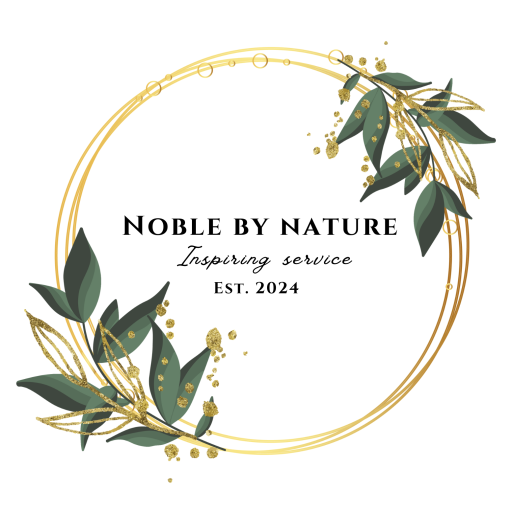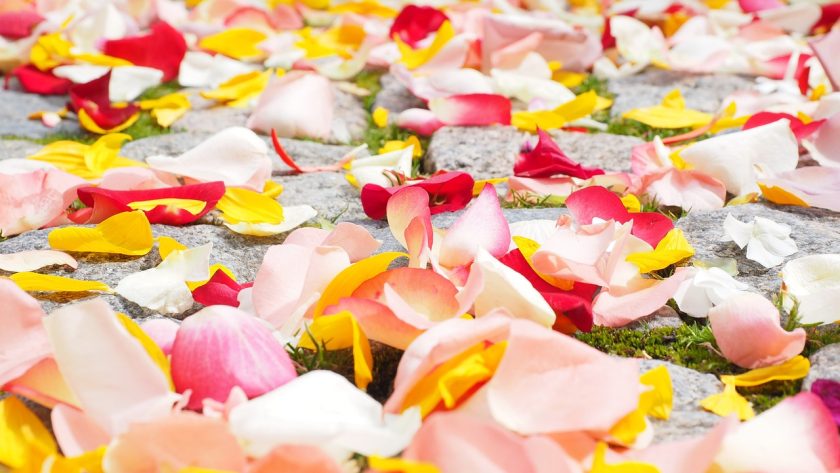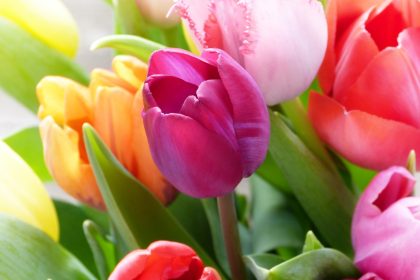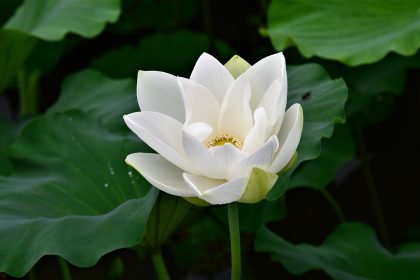As susceptible human beings, we are prone to fall into the norms of society. Some norms are harmless while others leave us questioning our worth and value. We have developed a pattern of finding our worth in the things that do not truly define us. For example, our appearance. Our culture has become so obsessed with aesthetics that we no longer accept the unfiltered, messy bits of life. Our timelines are cluttered with superficial “influencers” overly promoting luxury and beauty that the sacred elements of life get lost in a futile. (I don’t have anything against beauty products or make-up. I love make-up. And I love my self-care days. Young Vida loved make-up so much that she didn’t seem to mind the mismatched foundation, the excessive eyeliner or the pouty lips. My point is that superficial beauty has become overemphasized. And overvalued.)
But why have we become so attached to what others think of ourselves? Why are we so captivated and entangled in the pursuit of validation? For me, I too have judged my worth according to things society tells us are important. Appearance, weight, style, status, and career have all found their way into the measurement of how valuable I am according to the yardstick others have created.
We do not only measure ourselves according to these social constructs of success. We judge ourselves for the decisions and choices we have made in the past. We think about who we could have been if we had just done something differently. For years I berated myself for choices I made that had painful consequences. But I reflected and remembered that we all make mistakes and by focusing on the past we hold ourselves to an outdated standard of who we used to be instead of persisting in our attainment, creation, and progression of our spiritual and noble identity. We embrace and idolize our future selves without holding compassion for who we used to be, all too eager to forget what our younger selves had to endure to make it here.
We don’t always appreciate the process of becoming. We compare and judge our progress according to others and their milestones and we forget that nobody, truly nobody, has it all figured out. Not even the personal development junkies on YouTube. It is not easy detaching from the ideal you have created of who you think you should be or rather who the world says you should be. But we all have the right to radiate joy and find true fulfilment in our ordinary everyday lives. There is beauty in simplicity. We often think we need to pursue happiness forgetting that it is easy to fall into the trap of chasing rainbows. Happiness is always in the present moment. There is always an opportunity to be happy. About something. About anything. There is no need to attach ourselves to our ego’s need to prove itself by acquiring the world’s standard of “success” and mistakenly assign our value according to the perceptions of others.
In the same way that we should not get caught up in overvaluing our future selves, we should also detach from the past versions of ourselves and the many mistakes we may have made or all the people who have mistreated us. Forgiveness is nourishing. When we recognize that we are all on different paths of learning, each one at a different stage, we can see how resentment hinders the growth of our souls. By practising forgiveness and choosing to not take offence, we enhance our sense of wholesome inner wellness.
As naive beings, it is important to know where to get our helpful information from. Our source needs to be reliable and relevant. I have found that positioning my heart towards the Creative Word of God has always provided me with a clear sense of direction and helped me find my True North. Through my dependence on God’s Word, I have embraced my purpose in two ways: knowing God and worshipping Him. And I do that by making service to humanity my ardent desire. I nurture this purpose through fervent prayer, reflection and meditation and my spirit is encouraged when I realize that God has thought of everything and that nothing is a surprise to Him. Knowing that I can lean on His understanding and recognizing that His ways are infinitely greater than my own, I find peace through my purpose. I cannot count the number of times I thought my vision of what life should be was wrecked by a more meaningful perception of how to truly live life. Moulding loftier goals and creating a more wholesome vision for my life; forming my identity based on the counsels of the Spirit and fulfilling my God-given purpose by embracing my talents and enhancing my capacity.
God has endowed each of us with a unique capacity to become active protagonists of change in our families and communities. We all have different talents and gifts, and we must take radical responsibility to nurture our capacity so that we can make meaningful changes in our lives and transform the regressive systems of society. Our aim should be to create an ever-advancing civilization that surpasses our finite vision of the significant change that can occur when we take practical yet sustainable steps towards progress. No matter what the measurement of our capacity is, whether it be a pint or a gallon, we will only truly feel fulfilled when we empty ourselves of our time, energies, and efforts to attain the greater good. This may seem like a tall order, and we may often fall short, but we should be wary of becoming despondent and apathetic, knowing we can rely on and trust in God’s immeasurable grace, mercy, and compassion.
Receiving these gifts of grace, mercy and compassion requires us to open and position our hearts towards God; the way a flower opens and positions itself towards the light of the sun and is sustained by its warmth and radiance. We can depend on what God says about His great love for us and His assurances that we are good enough because we were created in His image and trust that His Word is founded on truth.
I have always struggled with my attachment to what others think of me. I would compare myself and wonder if people were judging me. A lot of these fears are based on a competitive mindset instead of a paradigm of collaboration. I would diminish my self-worth by chasing the approval of others and relying on society’s acceptance instead of living in my truth and purpose. It sounds a little cliché but most things in the natural world do not compare themselves. Flowers just bloom, plants flourish, the sun just shines, and the rains pour. No comparison: each doing what it was created to do.
When we don’t value ourselves, we listen to the voices in our heads that tell us we are not good enough. And we attach meaning to that voice instead of identifying it as the ego. When we allow room for the facts instead of following disempowering impulses that try and convince us that we are not good enough, smart enough, or valuable enough, we allow ourselves to nurture our minds with loving thoughts instead. We can approach these emotions with curiosity and understanding and independently investigate the truth of who we are. We can build ourselves up and love ourselves into a state of fruition by finding sustenance in the Word of God.
In the same way a plant grows and expresses its beauty, we too are in the process of becoming. Every state of the flower is precious. From the germination of its seed to the falling of its petals. Every part of this plant can be admired. Especially the scattering of its petals. We often use petals to honour the life of a departed soul who has completed its divine sojourn in this realm. There is a sacredness in this process, and we can recognize and acknowledge the journey of this soul in this physical realm and the enchanting fragrance it has left behind in this world. This is what we all desire. To leave a legacy. Our souls long to detach from this world, the way petals detach when their stay has expired. Yet their fragrance lingers and remains. As the plant grows and blossoms, it moves through a series of transformations, yet it is always the same in its essence. From petals to potpourri, it is the oldest story in the book. A tale of becoming. A tale of time.
“God will answer the prayer of every servant if that prayer is urgent. His mercy is vast, illimitable. He answers the prayers of all His servants. He answers the prayer of this plant. The plant prays potentially, “O God! Send me rain!” God answers the prayer, and the plant grows.”
(‘Abdu’l-Bahá, The Promulgation of Universal Peace: Talks Delivered by ‘Abdu’l-Bahá during His Visit to the United States and Canada in 1912(Wilmette: Bahá’í Publishing Trust, 2007), p. 345)





